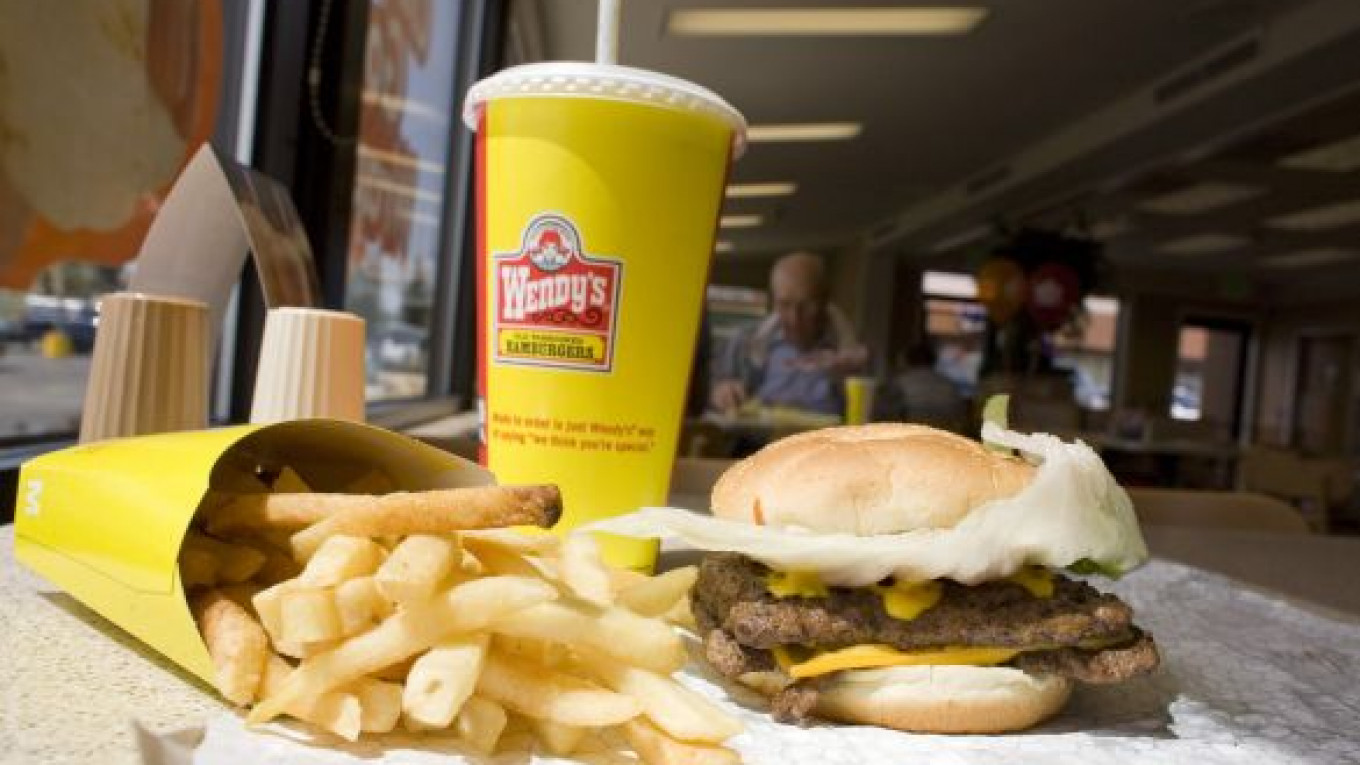Wendy’s/Arby’s Group on Tuesday announced that it would be opening 180 dual-branded Wendy’s and Arby’s restaurants in Russia over the coming 10 years.
Franchisee Wenrus Restaurant Group, an affiliate of Food Service Capital, will open 120 restaurants across the country, while another 60 locations will be launched under subfranchising agreements in cooperation with the company’s partners in the regions.
“Russia is a dynamic market which offers significant long-term expansion potential,” Wendy’s/Arby’s Group chief executive Roland Smith said in a statement.
The first restaurant will be opened in one of Moscow’s largest shopping centers in the first quarter of 2011, and a total of 8 restaurants will appear in the city by mid-2012.
Wenrus will invest $40 million in the project over the next 5 years, and more than $60 million in the five years following.
“We’ve always had an appetite to come to the fast-food market, “ said Mikhail Zelman, owner of Food Service Capital, a holding that includes restaurant chains Goodman, Filimonova and Yankel, Kolbasoff and Mamina Pasta, as well other catering and food service companies.
The fast-food restaurants will offer both Wendy’s and Arby’s menus, and meat for the burgers will be procured domestically, Zelman said.
Wendy’s/Arby’s has fewer restaurants outside North America than its biggest rivals — McDonald’s and Burger King — and the agreement with Wenrus will be the biggest the company has ever signed outside its home country, said Andrew Skehan, senior vice president of Wendy’s/Arby’s International.
Both sides declined to disclose the terms of the franchising agreement, but under Wendy’s standard U.S. franchising agreement, the franchisee pays a royalty of 4 percent of revenue in addition to a one-off payment of $25,000 per restaurant.
Zelman said he was not afraid of competition on Russia’s fast-food market, which has a big potential and a rather scarce supply.
“The more good brands there will be … the more the whole market and all the companies will benefit.
It would be illogical to call us rivals today. We are more like colleagues; We do one big business,” he said.
Zelman added, however, that there were a number of locations, including along highways and in railway stations, where Wendy’s was unlikely to see competition.
The Russian restaurant market is among those with the highest potential in the world, since “it’s one of the least-penetrated markets,” Skehan said.
“There’s a meat-eating culture here. … So all these things together make sense for us,” he said.
A Message from The Moscow Times:
Dear readers,
We are facing unprecedented challenges. Russia's Prosecutor General's Office has designated The Moscow Times as an "undesirable" organization, criminalizing our work and putting our staff at risk of prosecution. This follows our earlier unjust labeling as a "foreign agent."
These actions are direct attempts to silence independent journalism in Russia. The authorities claim our work "discredits the decisions of the Russian leadership." We see things differently: we strive to provide accurate, unbiased reporting on Russia.
We, the journalists of The Moscow Times, refuse to be silenced. But to continue our work, we need your help.
Your support, no matter how small, makes a world of difference. If you can, please support us monthly starting from just $2. It's quick to set up, and every contribution makes a significant impact.
By supporting The Moscow Times, you're defending open, independent journalism in the face of repression. Thank you for standing with us.
Remind me later.






